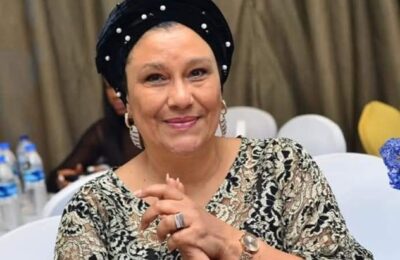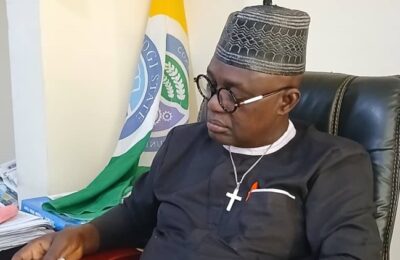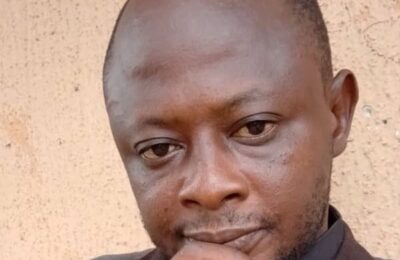They do not lead; they are led. They do not govern; they are governed. And when they speak, it is the echoes of another man’s voice that vibrates through their tongues. This is the tragedy of godfatherism in Nigeria—an evil genius that wears the cloak of mentorship but operates with the cruelty of a political mafia. It is no longer about building successors but installing stooges. And sadly, the nation is gasping.
Democracy in its truest form thrives when leadership emerges from the ballot, not from backdoor agreements sealed in silence over pepper soup and private jets. But in Nigeria, political godfathers have mastered the art of remote control leadership—where power lies not in the office of the governor, senator, or president, but in the compound of an aged tycoon whose empire was built on decades of political brokerage. Their fingerprints are on ballot boxes they never touch, and their names never appear on the ballot, but they rule still—firmly and fearfully.
This isn’t mentorship. It’s manipulation. It isn’t legacy. It’s hegemony. And the consequences are dire.
As it stands, many political aspirants enter public office not with a vision for the people, but with a vow to remain loyal to their political patrons. They are handed power not as instruments of change but as rewards for servitude. When the godfather says “jump,” the so-called leader asks “how high?” Such a nation cannot breathe.
From Lagos to Lokoja, from Kano to Calabar, you can trace the contours of political tragedy to the shadows cast by men who consider public leadership their private estate. In Kogi, for instance, multiple administrations have been influenced by a handful of powerful individuals who prefer personal loyalty over people’s progress. The future is no longer negotiated in the open space of town halls, but in hotel rooms and moonlit parlors, where palms are greased and promises exchanged—away from the scrutiny of the electorate.
One must ask: how did we get here?
The roots go deep. Political godfatherism in Nigeria is a generational curse, born of military hangovers and deep-pocketed civilian oligarchs. Those who fought their way through the ranks during the pre-1999 era began to plant themselves in the corridors of power as immovable gatekeepers. And as they aged, they traded guns for guile and tanks for thrones—unseen thrones from which they rule with invisible sceptres.
Their influence has killed merit, buried ideology, and made mockery of the democratic process. Many good men and women with vision have either bowed out or bowed down. Elections have turned into rituals where candidates must first seek the “anointing” of political warlords before seeking votes. Those who resist are blacklisted, attacked, or politically assassinated—not with bullets, but with allegations, court cases, and disinformation campaigns.
A great Man of God once warned, “When God’s choice is rejected, a nation begins to suffer the consequences of human selection.” This is exactly where we are. When godfathers choose leaders based on selfish calculations, divine direction is ignored, and the people pay the price. Every year, the Nigerian state bleeds not just from insecurity and corruption, but from the wounds inflicted by maladministration and misgovernance—much of it traceable to the godfather syndrome.
What is more dangerous is the silence. The silence of intellectuals, the compromise of clerics, and the complicity of citizens who have come to normalize this abnormality. Political parties no longer function as ideological engines but as platforms for the highest bidder. Internal democracy is a joke. Primaries are predetermined. And the electorate, often impoverished and disillusioned, is manipulated into voting with stomach, not conscience.
Our leaders knows all the verses of all Holy Books which warns that Man should not mix the truth with falsehood or conceal the truth while you know. Sadly, Nigerian politicians are far from practising it. They know the truth but conceal it for fear of offending their masters. Some who claim to be messiahs are mere marionettes. It is a dangerous game that keeps the people perpetually in bondage.
What, then, shall we say of the future?
Until godfatherism is broken, true governance cannot rise. Until political parties are reformed, democracy remains endangered. Until young leaders are groomed and not merely used, power will remain concentrated in the hands of a few, while the masses wander in a desert of despair.
Africa’s destiny cannot be fulfilled if Nigeria’s democracy remains hostage. And Nigeria’s democracy cannot breathe if every elected official is first owned, leased, and ordered by a man behind the curtain.
It is time to tear that curtain.
Igbo elders say, “He who fetches firewood with termites must expect lizards as guests.” Nigeria’s democracy is being eaten from the inside by these termites called political overlords. And until they are removed, governance will continue to attract political lizards—those who lounge in power but contribute nothing to the nation’s growth.
There is hope, however.
A new breed of Nigerian youths are rising—fearless, vocal, and resistant to the charm of political puppeteers. Movements like EndSARS, Obidient revolution, and grassroots campaigns by non-aligned candidates have shown that the tide can turn. But it must not stop. Civil society must remain vigilant. Clerics must preach not just salvation but civic truth. The media must speak truth to power, not dine with it. And every voter must remember: the power you sell today will cost you tomorrow.
Dr. Myles Munroe once said, “When purpose is unknown, abuse is inevitable.” Nigeria’s democracy is being abused because its purpose—freedom, justice, and people-first leadership—has been replaced with a purpose of patronage and control. This must end.
Let every state in Nigeria rise and reject the puppet show. Let every party cleanse its structure. Let every youth say “enough.” For until the political godfathers are dethroned, the future of Nigeria remains under siege—not by guns, but by grins; not by coups, but by contracts signed in darkness.
And in the words of Bishop David Oyedepo, “When the righteous are in authority, the people rejoice. But when the wicked rule, the people mourn.”
Nigeria has mourned enough.
It’s time to rejoice again.
– Inah Boniface Ocholi writes from Ayah – Igalamela/Odolu LGA, Kogi state.
08152094428 (SMS Only)




